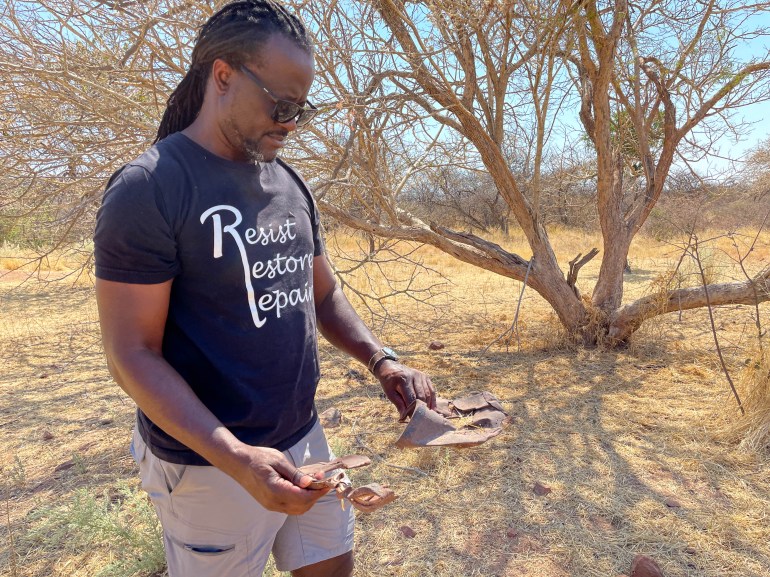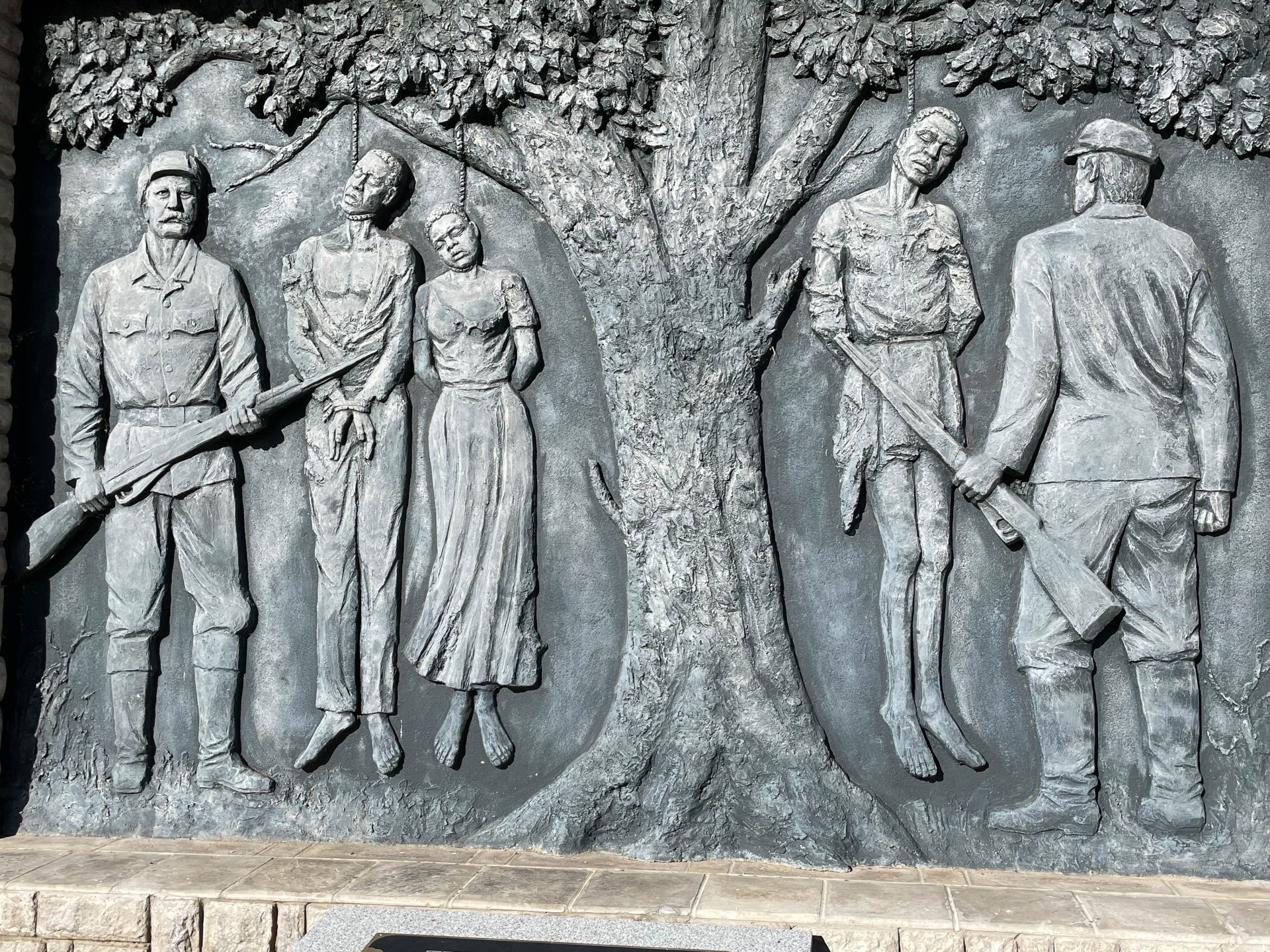Listen to this story:
Waterberg, Namibia – The lacy shadows of the acacia trees lie over the dry grass. A chilly winter breeze sighs through the branches. In the sparse shade, Jephta Nguherimo, a lifelong activist for restorative justice for the Herero people, holds the rusted remains of some military equipment, it’s impossible to tell now what it might have been used for.
The 59-year-old throws it back on the ground. “I’m thinking of all the women and children who died here,” he says.
He is standing on the site of the Battle of Waterberg where, on August 11, 1904, the German colonial army decimated Herero rebels who were fighting the colonists who had imposed their rule on the country and seized much of its land. The killings were part of a German campaign of collective punishment between 1904 and 1908 that is today recognised as the 20th century’s first genocide.
But his ancestors were not mere victims, he tells Al Jazeera: “This war was the first resistance to colonialism.”

Jephta was born in the village of Ombuyovakura in Namibia but lives in the United States now. He has a beard streaked with grey and speaks softly and thoughtfully. A poet and a deeply spiritual person, he believes passionately in justice for his people but also in reconciliation with the Germans who massacred tens of thousands of Herero, Nama and San, ethnic communities indigenous to the country then known as South West Africa.
“I have great respect for my grandparents and parents for the extraordinary efforts they took to protect us children from the transgenerational trauma wrought by the Genocide,” he wrote in 2020. “[D]uring their storytelling about the 1904 war, Herero men would never mention the genocide. They would only speak about the war of resistance.”
